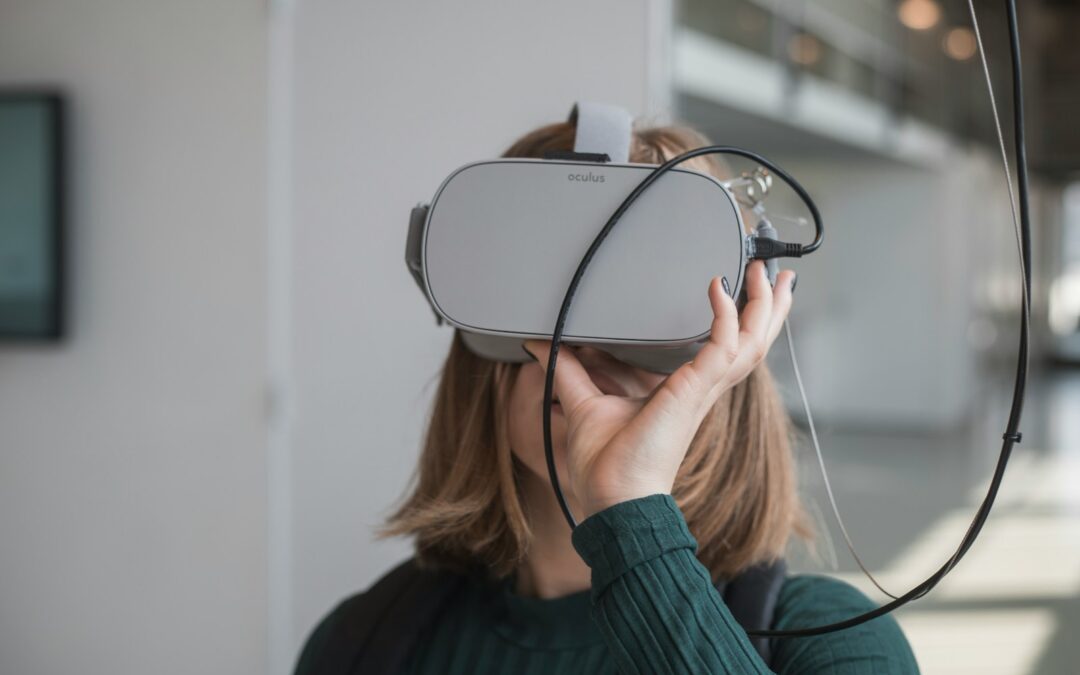Exploring Next-Generation Technologies in Emergency Response
Augmented reality in 911 dispatch systems represents a transformative leap in emergency response technology, offering dispatchers and responders enhanced situational awareness and critical information in real-time. This article delves into the potential impact of augmented reality integration, shaping the future of emergency services.
Enhancing Dispatch Operations with Augmented Reality
Augmented reality (AR) technologies are poised to revolutionize 911 dispatch systems by overlaying digital information onto the dispatcher’s real-world view. This capability enables dispatchers to visualize emergency scenarios more accurately, providing crucial details such as caller location, live video feeds from the scene, and real-time data from IoT sensors.
In cities like Riyadh and Dubai, where rapid urbanization presents unique challenges for emergency responders, AR-equipped dispatch systems offer significant advantages. For instance, during traffic accidents or natural disasters, dispatchers can use AR to pinpoint exact locations, assess road conditions, and coordinate rescue efforts more effectively. This enhances response times, reduces errors, and ultimately saves lives.
Moreover, the integration of AI algorithms with AR enhances decision-making capabilities. AI can analyze incoming data, such as historical incident patterns and weather conditions, to provide predictive insights to dispatchers. This proactive approach allows for preemptive resource allocation and strategic planning, ensuring optimal emergency response even in dynamic and unpredictable situations.
Empowering Responders with Real-Time Information
For emergency responders, AR enhances situational awareness by overlaying critical information directly onto their field of view. Firefighters, police officers, and paramedics in Saudi Arabia and the UAE can access floor plans, hazardous material warnings, and patient medical histories without diverting attention from the scene. This real-time data empowers responders to make informed decisions swiftly, improving operational efficiency and safety.
In Dubai, where rapid urban development is accompanied by complex infrastructures, AR-equipped responders can navigate unfamiliar environments more confidently. Whether extinguishing fires in high-rise buildings or conducting search-and-rescue missions in densely populated areas, AR provides vital navigation aids and hazard warnings, mitigating risks and optimizing response strategies.
Furthermore, AR fosters collaboration among responders by facilitating real-time communication and information sharing. Teams can annotate digital overlays with notes and instructions, ensuring everyone remains synchronized and informed throughout the incident. This collaborative approach enhances teamwork, minimizes communication errors, and enhances overall operational effectiveness.
Driving Innovation and Preparedness in Emergency Services
The integration of augmented reality in 911 dispatch systems represents a paradigm shift in emergency preparedness and response. By leveraging advanced technologies in Riyadh and Dubai, emergency services can adapt to evolving challenges and improve outcomes for both responders and the community.
In Saudi Arabia, where the Vision 2030 initiative emphasizes technological advancement across sectors, AR-enabled emergency response systems align with the nation’s goals of enhancing public safety and infrastructure resilience. By investing in cutting-edge technologies, such as AR, Saudi Arabia prepares its emergency services to handle complex incidents with efficiency and precision.
Similarly, in Dubai, where innovation is at the heart of city planning, AR integration in emergency response reflects the commitment to smart city initiatives. By harnessing AR’s capabilities, Dubai aims to create safer urban environments and ensure rapid, coordinated responses to emergencies, safeguarding both residents and visitors.
Advancing Training and Simulation Capabilities
Augmented reality not only enhances operational effectiveness during emergencies but also revolutionizes training and simulation for emergency responders. In Riyadh and Dubai, training programs can utilize AR to simulate realistic scenarios, allowing dispatchers and responders to practice decision-making under various conditions. By immersing trainees in interactive, lifelike simulations, AR fosters experiential learning and prepares responders for complex real-world challenges. This proactive approach ensures that emergency personnel are well-equipped to handle diverse situations with confidence and competence, ultimately raising the standard of emergency preparedness across the region.
Integration Challenges and Future Considerations
While the potential of augmented reality in 911 dispatch systems is vast, its implementation presents certain challenges that must be addressed. Technical integration with existing infrastructure, compatibility across different devices and platforms, and ensuring data security and privacy are critical considerations. Riyadh and Dubai, known for their forward-thinking approach to technology adoption, are likely to overcome these challenges through collaborative efforts between government agencies, technology providers, and academic institutions. Continued research and development will refine AR solutions, ensuring seamless integration and maximizing the benefits for emergency response teams and the communities they serve.
Global Trends and Future Outlook
Beyond Saudi Arabia and the UAE, global trends indicate a growing adoption of augmented reality in emergency services worldwide. Countries are increasingly recognizing AR’s potential to revolutionize emergency response capabilities, from enhancing coordination during natural disasters to improving medical emergency interventions. As AR technology evolves and becomes more accessible, its application in emergency services is expected to expand, driving innovation and setting new benchmarks for operational efficiency and public safety globally. Riyadh and Dubai’s leadership in embracing these advancements positions them at the forefront of shaping the future landscape of emergency management, setting a precedent for smart cities worldwide.
Conclusion: Embracing Technological Advancements for Safer Communities
Augmented reality is poised to redefine the future of 911 dispatch systems in Saudi Arabia, the UAE, Riyadh, and Dubai. By enhancing situational awareness, empowering responders with real-time information, and driving innovation in emergency services, AR integration promises to revolutionize how emergencies are managed and mitigated.
As technology continues to evolve, the ongoing development and adoption of AR in emergency response will play a crucial role in building resilient, responsive communities. By embracing these technological advancements, Saudi Arabia and the UAE demonstrate their commitment to leveraging innovation for public safety and ensuring effective emergency preparedness for years to come.
—
#911Dispatch #AugmentedReality #EmergencyResponse #SituationalAwareness #FutureTechnology #SaudiArabia #UAE #Riyadh #Dubai #ArtificialIntelligence #Blockchain #Metaverse #GenerativeAI #BusinessSuccess #Leadership #ManagementSkills #ProjectManagement

